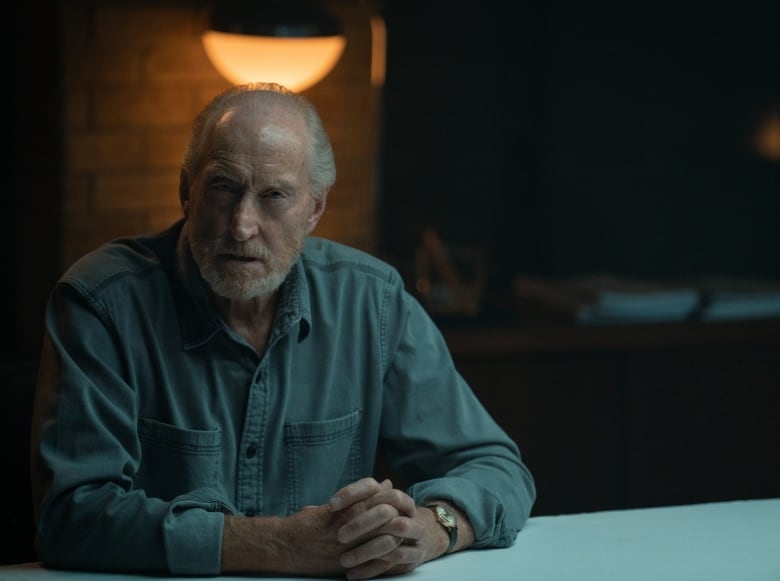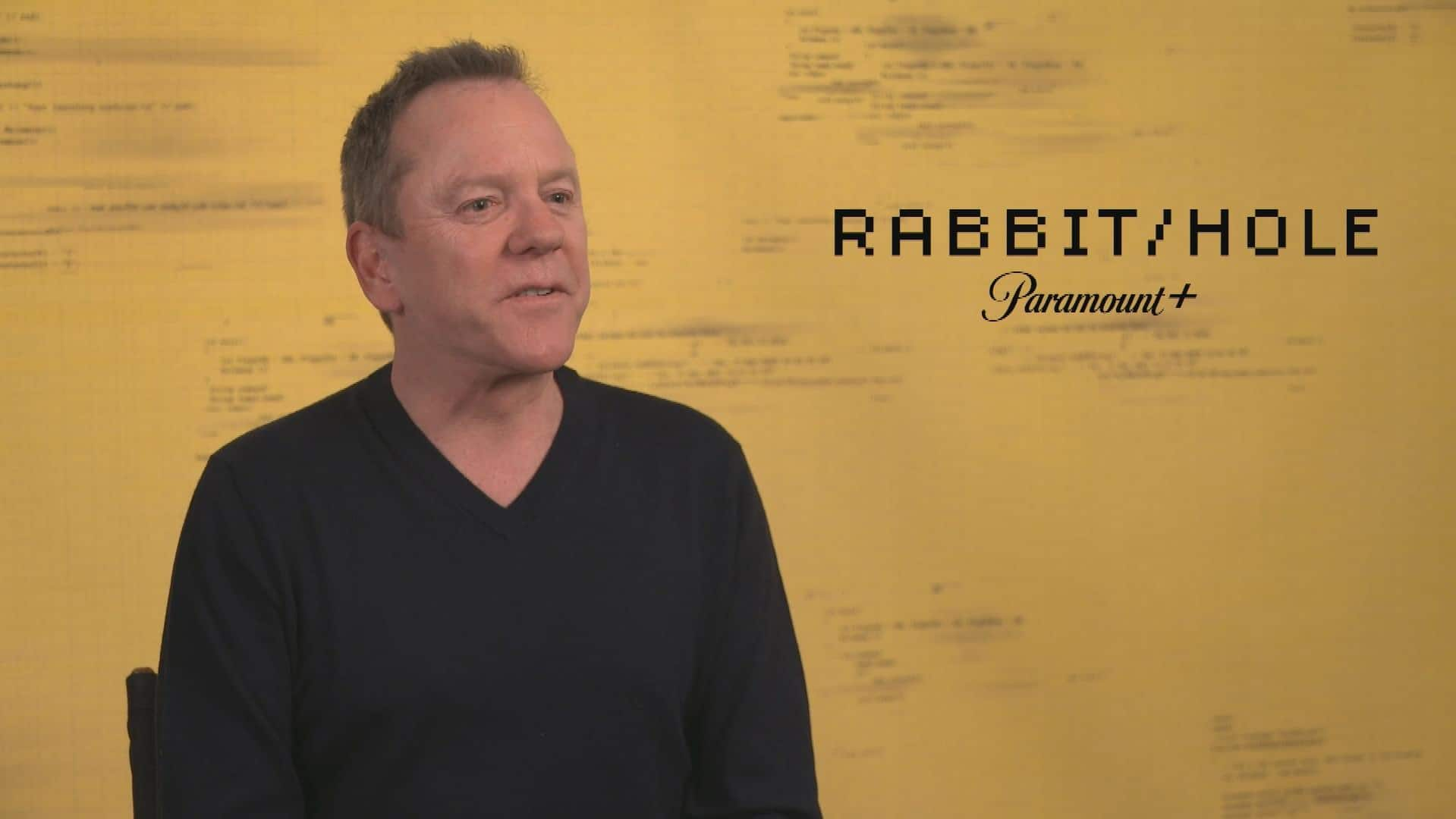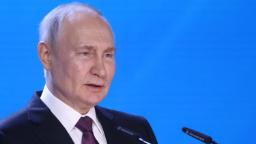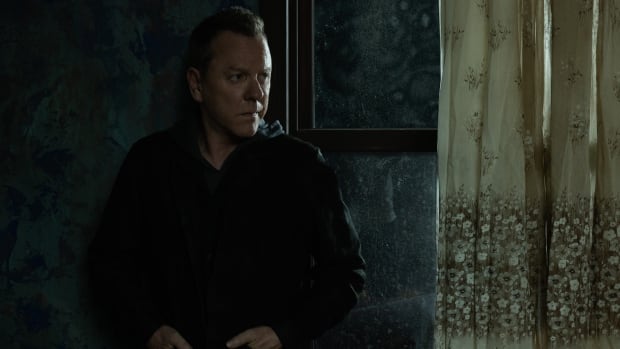
Over his nearly 40-year-long career, Canada’s Kiefer Sutherland has played everything from vampires to cowboys. But if there’s one thing TV fans have grown to love, it’s Sutherland saving the day.
In the long-running series 24, he barked orders and managed to survive nine seasons of bedlam as Jack Bauer. Now he’s back, this time as John Weir, a corporate espionage expert thrust into a high-tech conspiracy. The eight-part series on Paramount+ premiering March 26 finds Sutherland in familiar circumstances.
Sutherland returned to Toronto, where the series was shot in the summer of 2022, and spoke to CBC News about seguing from Jack to John.
“Even though the genre is almost identical,” he says, the characters are dramatically different. “The tent pole of the thriller is to take a character who’s going through a normal day and just completely turn their world upside down.”
A hero who runs … away
But John, a sly corporate intel and espionage expert, approaches situations quite differently than Jack. “He’s like a baseball bat to the head and John Weir is like a surgeon’s scalpel. My favourite kind of analogy is that Jack Bauer would run into a fight and John Weir would run away from a fight.”
In Rabbit Hole, we see John Weir doing a lot of running, fast talking, and in general using his wits to survive when he’s seemingly framed for the murder of an important politician.
Kiefer Sutherland talks about the differences in playing Jack Bauer the hero of the 24 series, to John Weir in his new series Rabbit Hole from creators Glenn Ficarra and John Requa.
Rather than Jack barking orders at his colleague Chloe, the character of John Weir is caustic and comedic. Sutherland says he enjoyed the change of tone and describes playing John like “stepping into a new pair of shoes.”
A classic conspiracy thriller with a modern twist
Rabbit Hole comes from showrunners John Requa and Glenn Ficarra, a writing and directing team who’s worked on shows such as This is Us and WeCrashed and the film I Love You Phillip Morris. While Kiefer Sutherland doesn’t see himself as a comedic actor, he appreciated playing a character who can have fun with the chaos around him.
“They write just fantastic humour. You can take an incredibly dynamic and stressful situation … and then you can completely dismantle it.”
Sutherland says what also attracted him to the series was the sense of paranoia and conspiracy that evoked classic 1970s thrillers such as Three Days of the Condor and Marathon Man.
“They were kind of in our rearview mirror of what we kind of wanted to represent in the thriller genre.”
As opposed to terrorism threats of 24, Rabbit Hole has a more technological focus — a world where stocks are manipulated through social media whisper campaigns. A rich topic to mine says Sutherland.
“This technological revolution that we are as a society fighting to get through, I think it’s going to be decades before we fully adapt to it, just like took us decades to adapt to the industrial revolution.”
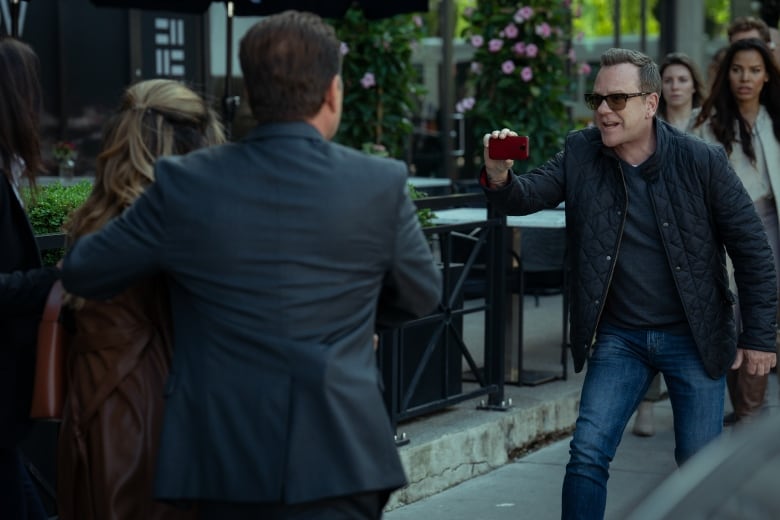
Changing business, changing pace
Ironically, Kiefer Sutherland himself is more of a low-tech guy. Just about the only social media he embraces are his posts about his music, where he shares songs and albums he’s created. Asked if he pines for the less social-media savvy days of filmmaking that his father Donald Sutherland enjoyed, the younger Sutherland waxed nostalgic about when his father shot the classic western The Dirty Dozen.
“I’ve heard amazing stories,” he tells CBC News, “none of which I feel comfortable telling … but back in a time when they worked eight hours a day and they had lunch and maybe some wine in the afternoon and filmmaking was considered an art.”
Back then, he says, a movie could take nine months to film; now it’s in three months or less.
But at the same time, while not all actors enjoy the repetition that comes with a long-running series, Kiefer Sutherland has talked about how much he enjoys having a daily routine and how the fast pace of the show helped him mature as an actor.
Now as the promotional machine for Rabbit Hole revs into action, he says he’s excited to see what fans think: “You just kind of can’t wait to get it out to people.”
